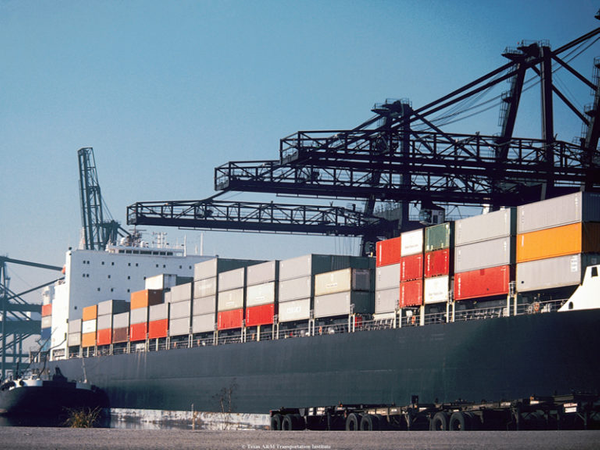
An innovative application of blockchain technology will be put to the test at the Port Community of Veracruz, Mexico by a team of researchers from the Texas A&M Transportation Institute (TTI) and dexFreight, a Florida-based blockchain and logistics startup.
The project will help define blockchain applications for improving the safety and security of freight transportation within port communities.
Blockchain has been described as an “immutable ledger,” a secure, transparent system for tracking shipments and transactions through complex environments. The dexFreight platform to be used in this project incorporates “smart contracts” built on industry-standard token platforms that allow payments to be exchanged for verified shipment milestones.
TTI is providing expertise in supply chain and logistics analysis for the project; dexFreight is providing expertise in logistics, blockchain technology and the platform upon which the system is built.
In 2017, Port of Veracruz moved 1.12 million TEUs, making it the third busiest container port in Mexico and the most important in the Gulf of Mexico. Expecting the trend of growing container volumes to continue, the port is undergoing an increase of its capacity, expecting it to be five million TEUs by 2030. The new port facilities are considered by some Mexican officials to be the nation’s largest infrastructure investment in 100 years. For that reason, participants of this project believe the modernization of infrastructure has to be accompanied by the use of newer and better information technologies to power more efficient logistic services through the port.
“The project and the Port Community System are critical in improving trade efficiency at the port and being competitive. The aim of the Port Community System is to reduce the time and effort it takes to securely export and import containers through the port and provide much better service to the customers,” explained Baruc de la Fuente, administrator for Veracruz Customs.
“Blockchain technology adds openness, neutrality and transparency to the Port Community System,” said Juan Ignacio Fernandez, director of Veracruz Port Administration. Susana Diaz Virgen, general manager of Hutchinson Ports (ICAVE) mentioned that the project’s objective is “collaboration through transparency.”
During the signing event, the president of the Customs Brokers Association in Veracruz, Ramon Gomez Barquin, asserted “The Port’s competitiveness is imperative for its long-term success. The community must come together to find innovative technologies such as blockchain to enhance the port operation for the benefit of importers and exporters.”
The project will be led by Rajat Rajbhandari, CEO and co-founder of dexFreight, and Juan Carlos Villa, senior research engineer at the Texas A&M Transportation Institute.


